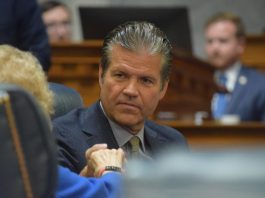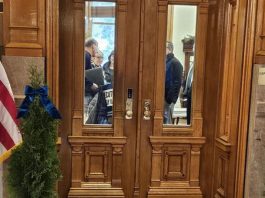Marilyn Odendahl for www.theindianalawyer.com
Jamie Beck’s journey from being confined in a nursing home to living in her own apartment and working a full-time job was aided by a pilot project funded by the American Bar Association and run through the Indiana state court administration.
Eight years ago, Beck, a woman diagnosed with a mild intellectual disability and attention deficit hyperactivity disorder, had been put into a nursing home in Richmond because she had no one to care for her. Both her parents and stepfather had died, leaving the then-19-year-old alone and without support.
She was adjudged by the Wayne Circuit Court to be incapacitated and was appointed a permanent legal guardian.
However, last week, Beck, now 27, made Indiana history. She became the first Hoosier to have her guardianship terminated in favor of a supported decision making agreement.
“This is really cool because guardianship is a significant infringement on somebody’s rights,†said Melissa Keyes, legal director at Indiana Disability Rights and Beck’s attorney. “For Jamie to have her rights restored while still being supported in making life decisions is fantastic.â€
In an order signed June 13, Wayne Superior Judge Gregory Horn found Beck was no longer an incapacitated person and was capable of managing her affairs through informal supports as well as the supported decision making document.
The pilot project that helped Beck was developed collaboratively by the Adult Guardianship Office of the Indiana Office of Court Services and Indiana’s Working Interdisciplinary Network of Guardianship Stakeholders (WINGS). It was just one of three in the country to receive a $30,000 grant in June 2017 from the ABA to examine less restrictive options for guardianships. The Indiana pilot is looking specifically at supported decision making.
Erica Costello, staff attorney at the Adult Guardianship Office, said while guardianships are still needed, alternative options that provide more freedom to adults should also be available.
Supported decision making was known in Indiana, Costello said. Agencies and nonprofits had been talking and thinking about the alternative, but the grant money enabled the conversation to be turned into action.
Wayne County was chosen to be the base of the pilot project because the community already has the infrastructure needed. It is being served by Achieva Resources, a Volunteer Advocates for Seniors and Incapacitated Adults program, and Horn was interested and supportive of the project, according to Costello.
The goal now is to extend the project into other counties. That effort was given a boost when the ABA provided about $3,000 to continue the grant from its planned termination in May until Sept. 30, 2018.
Indiana Disability Rights has been a partner in the pilot project. It helped to develop the forms that can now be used by others to write a supported decision making agreement, and it has offered education and training. Also, IDR identified Beck as someone interested in obtaining such an agreement.
Like Costello, Keyes said there is a need for alternatives to guardianships.
She explained supported decision making as just formalizing an ancient concept. Most adults seek out information and talk to trusted friends and acquaintances when they need help understanding matters such as car repairs or home buying.
Through her supported decision making agreement, Beck has designated a support team of select individuals who will help her make decisions about such daily responsibilities as finances, health care, legal matters and housing.
Keyes called Jamie “incredible†and noted more individuals could benefit from supported decision making.
“I am concerned about all the other people like Jamie that don’t have her self-advocacy or drive,†Keyes said. “They are sitting in nursing homes, wanting to make decisions on their own but they just haven’t found their voice.â€



